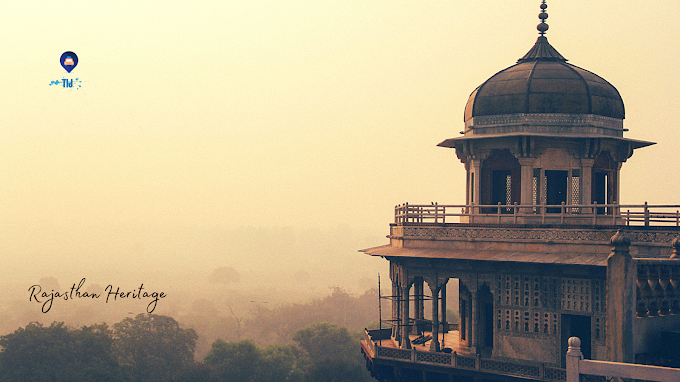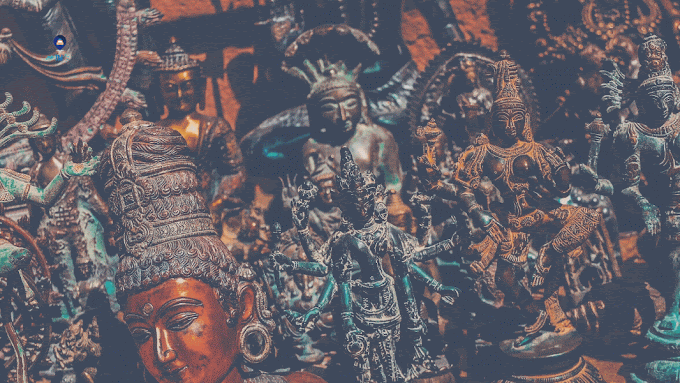The OverView About Some Old History
Akbar, incomplete Abū al-Fatḥ Jalāl al-Dīn Muḥammad Akbar, (born October 15 October 25, 1605, Agra, India), the best of the Mughal emperors of India. He reigned from 1556 to 1605 and extended Mughal electricity over most of the Indian subcontinent. In order to preserve the cohesion of his empire, Akbar adopted applications that gained the loyalty of the non-Muslim populations of his realm. He reformed and reinforced his central management and additionally centralized his financial system and reorganized tax-collection tactics. Although he is no way renounced Islam, he took an energetic hobby in other religions, persuading Hindus, Parsis, and Christians, in addition to Muslims, to engage in spiritual discussion before him. Illiterate himself, he advocated students, poets, painters, and musicians, making his court docket a center of tradition.
The Early LifeStyle
Abū al-Fatḥ Jalāl al-Dīn Muḥammad Akbar turned into descended from Turks, Mongols, and Iranians—the three peoples who predominated inside the political elites of northern India in medieval times. Among his ancestors were Timur (Tamerlane) and Genghis Khan. His father, Humāyūn, driven from his capital of Delhi via the Afghan usurper Shēr Shah of Sūr, became vainly trying to establish his authority in the Sindh vicinity (now Sindh province, Pakistan). Soon Humāyūn had to go away India for Afghanistan and Iran, in which the shah lent him some troops. Akbar, at the age of 13, changed into the made governor of the Punjab vicinity (now largely occupied with the aid of Punjab state, India, and Punjab province, Pakistan).
Humāyūn had barely installed his authority whilst he died in 1556. Within some months, his governors lost several important places, such as Delhi itself, to Hemu, a Hindu minister who claimed the throne for himself. But on November five, 1556, a Mughal force defeated Hemu on the Second Battle of Panipat (near gift-day Panipat, Haryana kingdom, India), which commanded the direction to Delhi, therefore ensuring Akbar’s succession.
At Akbar’s accession his rule prolonged over little extra than the Punjab and the region round Delhi, but, below the guidance of his chief minister, Bayram Khan, his authority changed into regularly consolidated and prolonged. The technique persisted after Akbar forced Bayram Khan to retire in 1560 and commenced to govern on his very own—before everything nonetheless under family affects however soon as an absolute monarch.'
Akbar first attacked Malwa, a country of strategic and economic importance commanding the path through the Vindhya Range to the plateau location of the Deccan (peninsular India) and containing wealthy agricultural land; it fell to him in 1561.
The Rajputs War
Toward the zealously independent Hindu Rajputs (warrior ruling class) inhabiting the rugged hilly Rajputana vicinity, Akbar followed coverage of conciliation and conquest. Successive Muslim rulers had located the Rajputs risky but weakened by means of disunity. But in 1562, when Raja Bihari Mal of Amber (now Jaipur), threatened via a succession dispute, offered Akbar his daughter in marriage, Akbar normal the offer. The Raja acknowledged Akbar’s suzerainty, and his sons prospered in Akbar’s provider. Akbar observed the same feudal policy towards the opposite Rajput chiefs. They were allowed to hold their ancestral territories, supplied that they mentioned Akbar as emperor, paid tribute, furnished troops whilst required, and concluded a marriage alliance with him. The emperor’s service changed into also opened to them and their sons, which provided monetary rewards in addition to honor.
Want to Explore more in Deep then Visit Rajasthan by Cab Service in Jodhpur in Rajasthan. and Explore more Amazing Facts.
However, Akbar confirmed no mercy to people who refused to well know his supremacy. When, after protracted combating in Mewar, Akbar captured the historic citadel of Chitor (now Chittaurgarh) in 1568, he massacred its population. Even though Mewar did now not submit, the autumn of Chitor prompted other Rajput rajas to accept Akbar as emperor in 1570 and to conclude marriage alliances with him, despite the fact that the kingdom of Marwar held out until 1583.
One of the amazing features of Akbar’s authorities was the volume of Hindu, and mainly Rajput, participation. Rajput princes attained the highest ranks, as generals and as provincial governors, within the Mughal service. Discrimination against non-Muslims become decreased through abolishing the taxation of pilgrims and the tax payable by non-Muslims in lieu of military providers. Yet Akbar turned into a long way extra a hit than any preceding Muslim ruler in triumphing the cooperation of Hindus in any respect stages in his management. The similar growth of his territories gave them sparkling opportunities.
In 1573
In 1573 Akbar conquered Gujarat, an area with many ports that ruled India’s change with western Asia, and then became east closer to Bengal. A rich united state with an extraordinary way of life, Bengal was tough to rule from Delhi due to its community of rivers, usually apt to flood during the summer monsoon. Its Afghan ruler, declining to observe his father’s instance and well-known Mughal suzerainty, become compelled to publish in 1575. When he rebelled and turned into defeated and killed in 1576, Akbar annexed Bengal.
Toward the end of his reign, Akbar embarked on a clean spherical of conquests. The Kashmir area became subjugated in 1586, Sindh in 1591, and Kandahār (Afghanistan) in 1595. By 1601 Khandesh, Berar, and part of Ahmadnagar were delivered to Akbar’s empire. His final years had been afflicted by using the rebellious behavior of his son Prince Salīm (later the emperor Jahāngīr), who became eager for strength.
Stay Tuned With Us To get More Historical Facts About Jodha and Akbar History.






0 Comments